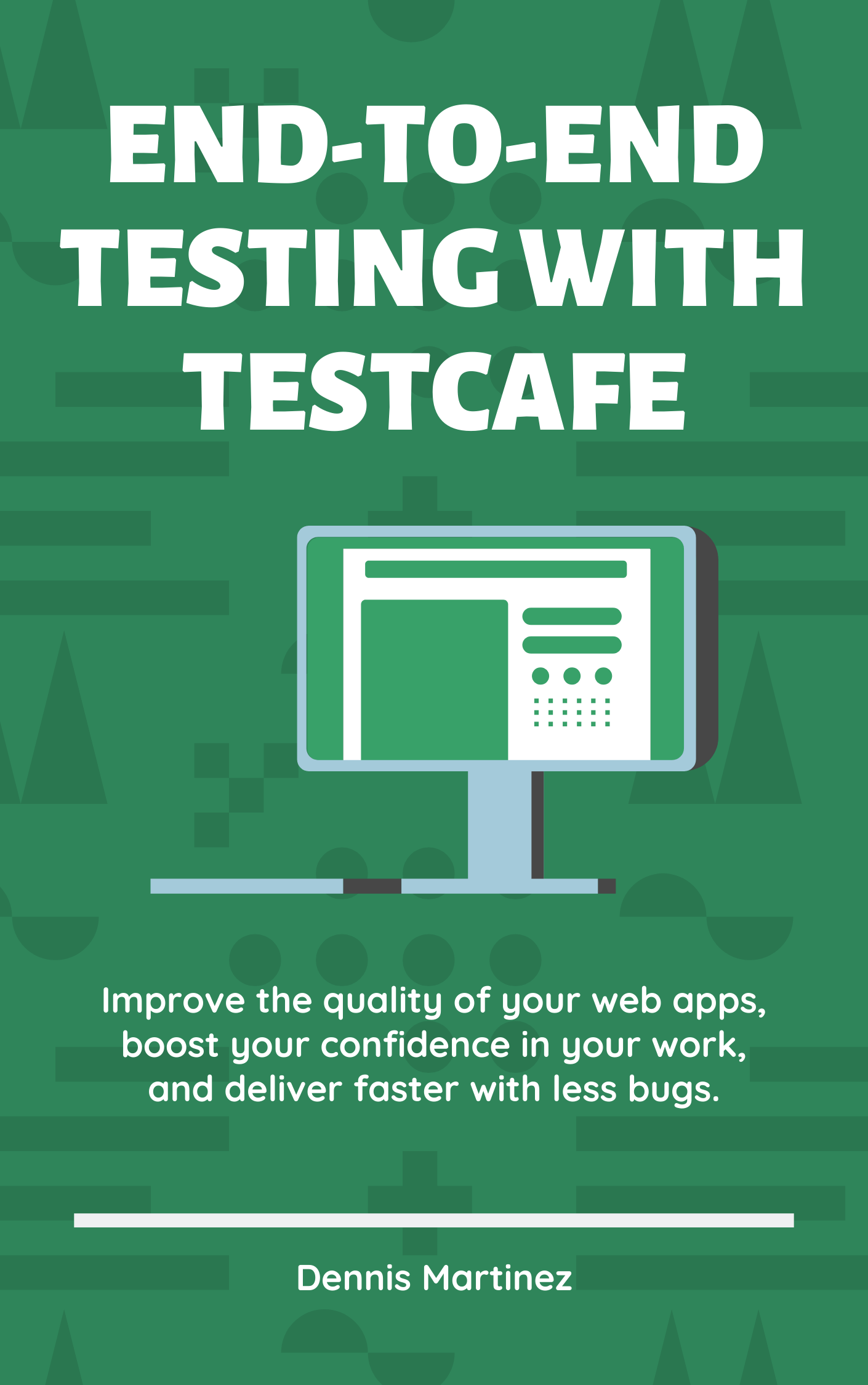These days, it's easier than ever to pick up any new skill. All you need is an Internet connection and some free time. From free resources like this blog and YouTube videos to paid courses from places like Udemy, there's no excuse not to pick up a skill you're interested in learning. You can sit in front of your computer and go to your favorite search engine, type in a topic, and voila - thousands of blog articles, videos, and courses are at your disposal.
However, that also can be a dangerous place for any eager learners. Because there's unrestricted access to any topic on the Internet, it's easy to fall into the learning trap.
The learning trap is when you spend an excessive amount of time studying new material without taking action on what you learned. It's not uncommon for people to consume tons of content for days, weeks, months - even years - and not put their new-found knowledge to good use. Studying isn't bad, but if you stay in this zone, all you've done is accumulate knowledge.
The famous saying Knowledge is power is correct. You need the knowledge to be successful in any endeavor. But there should be an extension of that saying - Knowledge without action is useless.
Too many topics, too many resources
This learning trap can happen for anyone at any time for any subject. However, I've found that it's particularly dangerous for testers. Software testing is a broad topic, spanning dozens of activities, frameworks, models, tools, practices, and so on. We all want to be great at what we do, so it's no wonder that we might find ourselves jumping from topic to topic indefinitely.
We all need to take time to learn and get better at our craft. If you're not continually learning, you'll stagnate and eventually find your knowledge completely outdated. You need to make sure you're taking time regularly to brush up your experience and pick up new skills.
That's where all the current access to resources come into play. Everyone has their preferred way of learning - some people like reading, others like following along video courses. No matter the method, you will pick things up as long as you study deliberately.
However, all that studying won't make you a better tester automatically. That's the main mistake testers make when learning new things. You might feel like you're "leveling up" your skills, but unless you do something about your studying, it'll fade away and get lost for good.
How many times have you studied something thoroughly, yet when you tried to use it, you had to go back to your material because you forgot it? Our brains are not suitable to store massive amounts of information without using it. That's often the case when spending too much time learning anything new. When you decide first to spend tons of time on something, you can't put it to use at that time because you're too busy studying.
How do you break this cycle? There's a simple and effective way to break this cycle.
Learn, Do, Repeat
The best thing you can do is a simple formula - learn a little, do a little, and repeat as necessary.
This formula is simple yet surprisingly effective. It solves all of the previously mentioned issues when trying to learn everything ahead of time:
- You avoid the learning trap because you can focus on learning a little bit at a time.
- You avoid forgetting what you've learned because you'll put it into practice immediately.
- You'll rarely find yourself backtracking from the material you studied because you'll be stacking what you learn and practice through lots of repetition.
This approach is excellent because it doesn't require massive time commitments, and you will see results much more quickly.
Let's take a real-life example for testers. Say you want to learn a new end-to-end testing framework such as Testcafe or Cypress. The quickest way to fall into the learning trap is to go to their respective websites and read the complete documentation before doing anything. That's a waste of time, and you don't need to remember all the things the tools do. All you need to do is learn just enough to get started.
The first thing you can do is to learn how to install the tool and create your first test. So you read the installation instructions and the tool's version of "Hello, World!" to get a feel for how tests work. Usually, this step takes a couple of minutes to read through, and you can then implement what you've learned quickly. In less than an hour, you might probably have the framework set up for your project and a sample test to see how it all works. Not bad for a short amount of time.
At this point, you'll have a better idea of what path to choose next. Are you confident enough to start writing more robust tests with what you learned? If you are, go ahead with that path and start writing some code. If you feel like you don't know what to do next, go back to the docs and learn a little more. Maybe you can learn how to structure tests in these frameworks, or other kinds of available test assertions.
By spending just a little time learning one piece of the puzzle and making use of it, your progress begins to accumulate quickly. It will help you get up to speed quicker than trying to learn everything at once. You'll also avoid the inevitable burnout by the seemingly endless study.
However, the real reason this is effective boils down to one word: confidence.
Building confidence to break your self-imposed limits
When beginning anything new for the first time, things can feel daunting. Scanning the documentation of a new automation framework or picking up a 500-page book is overwhelming. It's enough to send most of us scurrying away into the comfort of what we know, thinking we'll never learn that new topic.
On the other hand, it's far less intimidating if you take one little piece of that documentation or the first chapter of the book and focus on it. But the best part is that when you see that small section comes to life when you put it in action. There are few situations more satisfying than the first time you see a green test case in a new framework or the first time you know how that new process fixes a problem for your team.
That sense of pride and gratification is addicting. Once you get a taste of it, you'll want more. So you go back and learn something to put it to use immediately. You want to continue replicating those good feelings. Going back and forth between learning and doing will give you more opportunities to capture those positive emotions.
This process of repetition is where the learning sticks in the long run. That's why confidence is an essential part of the learning process. The more you see something work, the more you want to study and push things further and further.
Make sure to use it in real-life situations
Once you get into the habit of learning and doing in small and consistent doses, make sure you're using your knowledge where it's most needed. It's one thing to learn how to do something, but it's another to do something in a useful way.
When learning something new, many resources these days have you implementing what you learned in a controlled environment. For example, when learning software development, the book or course instructor will reinforce what you learned by building an application.
Building something while learning is an effective way to see things in practice. It helps strengthen the lessons because you're immediately putting your new teachings to use. However, this strategy alone is not a long-term solution to keeping what you learned in your head. There are a few things that come into play here.
First off, the resources used to help you learn are often basic and not reflecting a real-world example. For instance, a typical app used to show Javascript frameworks is a basic Todo app. Another example used to learn about API testing is Restful-Booker.
These resources are beneficial, but they are extremely simple compared to most real-world counterparts. Todo applications often have other features like reminders, priorities, and advanced filtering. RESTful APIs might require pagination, versioning, and different authentication methods like OAuth.
Another reason is that these examples don't resonate with you. It sounds like a silly thing, but if you find something uninteresting, you won't want to spend time on it. One of the most effective ways of learning is by doing something you enjoy. No one wants to be bored out of their skulls when studying on their own.
The first time you build a Todo app with a new Javascript framework, it's fun. But doing it again for another context might feel repetitious and boring. The Restful-Booker API is handy, but it might not hold your attention for long without any interesting booking data.
You'll still learn with these resources, but you'll often have to supplement your studying with topics that reflect your needs. Make sure you spend time putting your knowledge to work on your projects. That way, you can fill in the gaps your study material didn't cover and expand your comprehension further than a Todo app or basic API can.
Summary: Learn and repeatedly do, build your confidence, don't fall into the learning trap
Anyone can find material to learn about anything these days. It's a wonderful thing, but it can also hold you back if you just learn and never do anything about it.
Don't fall into the learning trap by putting your new-found knowledge to use as soon as possible. When you start learning, learn just enough to get you started with one thing and make something with what you just studied. When you need to learn more, go back and repeat the cycle.
Learn and do enough times, and your confidence will skyrocket. Seeing what you learned come to life will encourage you to keep moving forward with your learning. Repetition will cement all the new things you've studied for the long haul.
Make sure you're not just using the resources provided in your study material. Find ways to implement them in real-world situations. Use your work, whether it's at your job or your side projects, and see how the things you learned can help you. Fill in the gaps not covered in your study material, and you'll expand your knowledge even further.
By spending equal amounts of time learning and doing, you'll breeze through any new topic with ease and confidence. Nothing will stop you now.
Do you have any tips and tricks on learning new material quickly and effectively? Leave your secrets in the comments below!
Photo credit: Christina @ wocintechchat.com on Unsplash




